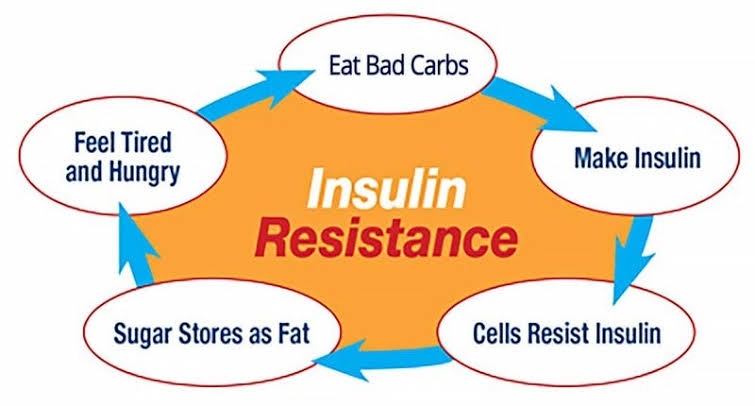Unlocking Health: 'Simple Ways to Naturally Reduce Insulin Resistance."
Insulin resistance, a condition where the body's cells become less responsive to insulin, can lead to various health concerns, including type 2 diabetes and cardiovascular issues.
The good news is that there are simple, natural strategies that can be incorporated into your lifestyle to help reduce insulin resistance.
Let's explore these approaches and empower ourselves to foster better metabolic health.
1.Embrace a Balanced Diet:
1.Prioritize whole, nutrient-dense foods, including fruits, vegetables, whole grains, and lean proteins.
2.Incorporate fiber-rich foods to slow down the absorption of sugars and improve blood sugar control.
3.Include sources of healthy fats, such as avocados, nuts, seeds, and olive oil, to support overall metabolic function.
4.Minimize the intake of processed sugars and refined carbohydrates, as they can contribute to spikes in blood sugar levels.
2.Regular Physical Activity:
1.Engage in regular aerobic exercises like walking, jogging, cycling, or swimming to enhance insulin sensitivity and regulate blood sugar.
2.Incorporate strength training exercises to build muscle mass, as muscle cells are more insulin-sensitive.
3.Establish a consistent exercise routine, aiming for at least 150 minutes of moderate-intensity aerobic activity per week.
3.Maintain a Healthy Weight:
1.If overweight, even a modest weight loss can significantly improve insulin sensitivity.
2.Focus on gradual and sustainable changes to promote long-term success.
3.Be mindful of portion sizes to avoid overeating and support weight management.
4.Prioritize Quality Sleep:
1.Aim for 7-9 hours of quality sleep each night.
2.Maintain a consistent sleep schedule to regulate circadian rhythms and improve insulin sensitivity.
3.Establish calming bedtime rituals to signal the body that it's time to wind down.
5.Stay Hydrated:
1.Hydrate with water throughout the day to support metabolic processes.
2.Limit sugary beverages and excessive caffeine intake.
6.Manage Stress:
1.Practice mindfulness, meditation, or deep-breathing exercises to manage stress.
2.Chronic stress can contribute to insulin resistance, so finding effective stress-reduction strategies is crucial.
7.Incorporate Anti-Inflammatory Foods:
1.Include omega-3-rich foods like fatty fish, flaxseeds, and chia seeds, which possess anti-inflammatory properties.
2.Incorporate spices like turmeric and ginger, known for their anti-inflammatory benefits.
8.Consider Intermittent Fasting:
1.Experiment with time-restricted eating or intermittent fasting, under the guidance of a dietitian Or physician
2.Some studies suggest potential benefits for insulin sensitivity.
9.Regular Health Check-ups:
1.Regularly monitor blood sugar levels, especially if you have risk factors for insulin resistance.
2.Consult with your doctor to assess your metabolic health.
Reducing insulin resistance naturally involves adopting a holistic approach to health. By embracing a balanced diet, regular exercise, maintaining a healthy weight, prioritizing sleep, managing stress, and incorporating anti-inflammatory foods, you empower yourself to enhance insulin sensitivity and support overall well-being.
These lifestyle changes not only contribute to better metabolic health but also promote a sustainable and vibrant approach to life. As with any health-related adjustments, it's advisable to consult with healthcare professionals for personalized guidance based on individual health conditions and needs.
Follow the Gavi's Touch Of Health & Fitness channel on WhatsApp: https://whatsapp.com/channel/0029Va9TkDq3gvWcFfCywQ2E
#828





Comments
Post a Comment